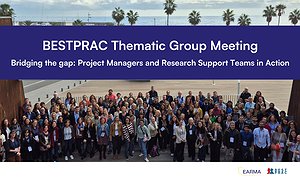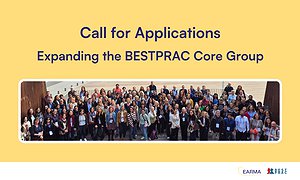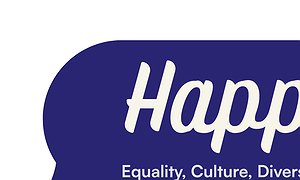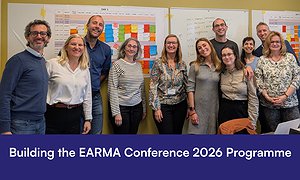Published 05/06/2024
The European Association of Research Managers and Administrators (EARMA) hosted an enlightening webinar on May 28, 2024, to discuss its new position paper on the upcoming EU Framework Programme 10 (FP10). The event, titled "The Research Manager and Administrator Community’s Voice on FP10," featured a panel of esteemed speakers who shared their insights and recommendations for the future of European research.
The session was moderated by Dipti Pandya, EARMA Chair, and featured contributions by Georg Schütte, Secretary General of the Volkswagen Foundation and member of the High-Level Expert Group on the Interim Evaluation of Horizon Europe and the Future of FP10; Joachim Wiemann, Deputy Head of Unit Common Strategic Planning & Programming Service, DG Research and Innovation of the European Commission; Eleonora Zuolo, PRC Chair and Board representative; and Daniel Spichtinger, Co-chair of the EARMA Open Science thematic group.
The road to FP10
FP10 is poised to build on the successes and address the challenges identified in previous framework programmes. Georg Schütte emphasised that while some of EARMA's recommendations are practical, the expert group's recommendations are often more abstract, targeting political rather than technical solutions to garner support from Member States. He highlighted the need to advocate for science at the national level and noted the challenge involved in this endeavour due to the many competing spending requirements governments are managing.
Schütte pointed out that Europe has lagged behind other regions in both basic and applied research. He stressed the need for a balanced approach that not only advocates for more funding for basic research but also enhances the efficiency and effectiveness of research valorisation. This holistic view encompasses the entire research lifecycle, from knowledge production to utilisation.
The discussion on Missions highlighted the necessity of a broad research scope to address contemporary societal, environmental, and political challenges. Schütte expressed the need for increased efficiency in research processes to ensure better performance and preparedness for future challenges. The Expert Group is still discussing the most effective modes of intervention for societal challenges, seeking to provide well-rounded recommendations that resonate across different research disciplines.
Dipti Pandya queried how the role of Social Sciences and Humanities (SSH) may develop in FP10. Schütte emphasised that Europe remains a leader in SSH, with substantial research output. However, he called for a shift in narrative from one of underrepresentation to one that highlights the contribution of SSH in addressing societal challenges. This change in perspective aims to move beyond the previous discussions and focus on the impact of SSH research.
Strategic planning and synergies
Joachim Wiemann provided insights into the strategic planning process for FP10. He noted that the European Commission's proposal for FP10 is expected by February 2025, following the ex-post evaluation of Horizon 2020. Wiemann's unit, G3, is responsible for coordinating all strategic documents related to FP10, ensuring alignment with Member States' positions and the European Research Area Committee (ERAC).
Wiemann discussed the importance of synergies between different funding mechanisms and highlighted the need for concrete provisions to overcome potential obstacles. He referenced Annex 04 of the Horizon Europe (HE) regulations, which outlines declarations of synergies, as a helpful tool in this process. However, he acknowledged that more work is needed to ensure these synergies are further effective.
One of the more recurring topics was the potential adoption of a lump sum funding model for FP10. Wiemann refrained from speculation but noted that the Commission's stance on this issue is nuanced. He informed the community that the Commission is open to examples demonstrating where the lump sum model has been effective and where it has not, indicating a data-driven approach to decision-making.
The session concluded with a discussion on partnerships within FP10 led by Eleonora Zuolo, EARMA PRC Chair. While Wiemann did not speculate on specific future partnerships, he acknowledged the positive experiences from past collaborations. These partnerships are crucial for driving innovation and achieving the ambitious goals set out in FP10.
Next steps
EARMA's information session underscored the need for a collaborative approach to shaping FP10. By combining practical recommendations with high-level strategic insights, the research community can advocate effectively for a Framework Programme that addresses the evolving needs of European research. As the Commission prepares its proposal for FP10, the contributions from stakeholders like EARMA will be invaluable in ensuring the programme's success.
The webinar highlighted the critical role of research managers and administrators in shaping the future of European research. Through continued advocacy and strategic planning, the community aims to position FP10 as a robust and inclusive programme that fosters innovation, addresses societal challenges, and maintains Europe's leadership in research and development in the world. EARMA will continue to promote the recommendations outlined in the association’s position paper as we prepare for FP10.

 All news
All news



